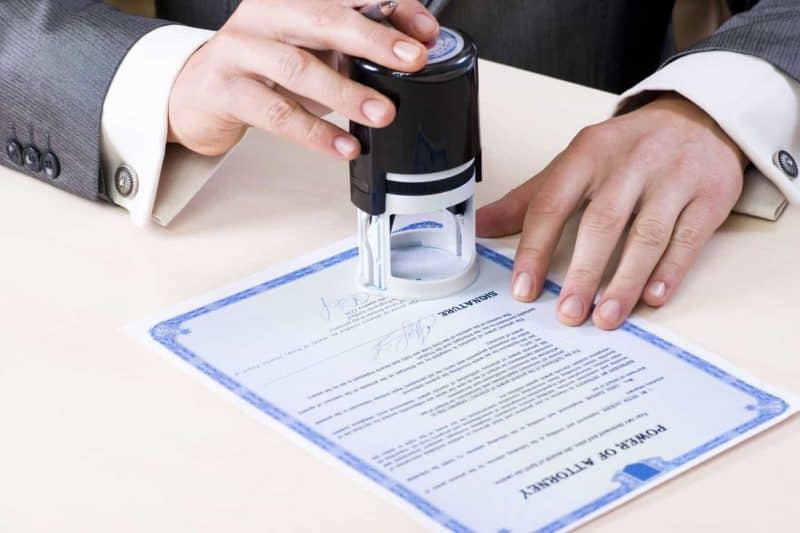When it comes to legalizing official documents, it is crucial to have everything properly arranged. Even a small mistake can lead to significant consequences in this process. Whether it involves legal documents, academic transcripts, or business agreements, having everything in order is essential to avoid unexpected issues. This is particularly true when documents need to be legalized for international use. In this process, the role of a sworn translator emerges as a crucial link in the document legalization process.
What is document legalization and why is it important?
Document legalization is the process of verifying official documents for use abroad. This verification may be necessary for various purposes, such as immigration, education, employment, business transactions, or legal proceedings. Different countries often have specific requirements for document legalization, depending on the type of document and its intended purpose. Therefore, the process of document legalization can vary greatly from one country to another and depending on the intended use of the documents. There may be several steps involved in this process, including legalizing signatures, verifying the authenticity of the document, and translating documents into the official language of the receiving country.
sworn translator is enlisted. In this process of translating documents into the official language of the receiving country, the services of a sworn translator are often required. These specialists are sworn and authorized by competent authorities to translate official documents and can assist you in this complex process of document legalization.

Challenges in document legalization and the role of a sworn translator
A sworn translator can play a valuable role during the process of document legalization by utilizing their expertise for the required translations. However, it is important to note that there are always other factors that can pose challenges. Document legalization can be a complex and time-consuming process, especially when it involves international transactions or immigration procedures. As mentioned earlier, different countries have their own specific requirements and procedures for document legalization, which can lead to confusion and delays for those involved.
One of the biggest challenges in document legalization is ensuring that the correct legalization process is followed and the proper stamps are applied. After this step, some countries require that documents in a foreign language be translated by a sworn translator. While the accuracy and validity of translated documents are crucial for their acceptance, it is equally important to follow the correct legalization procedures. Even minor errors or inaccuracies in the legalization process can lead to the rejection of documents by foreign authorities, with undesirable consequences.
This is where the valuable contribution of a sworn translator comes into play. With their legal authority, expertise, and experience, sworn translators can successfully overcome these challenges and deliver translations that meet the requirements of document legalization in a foreign country. These skilled translators are familiar with the specific technical jargon and legal conventions applicable to different documents. This allows them to use their expertise to interpret and convey them correctly in the target language.
The difference between a regular translator and a official translator
Now that the challenges have been addressed, it is also crucial to look at other important aspects of a sworn translator. The difference between a regular translator and a sworn translator lies in their legal status and responsibility.
The difference between a regular translator and a sworn translator lies in their legal status and responsibility. A sworn translator is not only proficient in translating the content of a document but also in assessing its accuracy, correct terminology, and applicable laws and regulations. This is crucial when translating legal, medical, or technical documents, where even the smallest mistake can have serious consequences.
The main difference between an unsworn and a sworn translator is that the sworn translator is obliged to put their signature, stamp, and certification on the translated document. This certification confirms that the translation is done to the best knowledge and expertise of the translator. Sworn translations are required mainly for legal, medical, and official documents. Unsworn translations, on the other hand, will not be certified by a translator and are usually required for non-official purposes, such as translations of presentations, unofficial letters, etc.
Only sworn translations can be legalized if required. Unsworn translations cannot be legalized or attested as they do not contain the stamp, signature, and certification of the translator.
The role of a translator in document legalization
During the process of legalizing documents, it is not sufficient to merely present the original documents. Often, these documents need to be translated into the official language of the country where they will be used. A sworn translator assists you in this process by:
- Providing accurate and precise translations of original documents, preserving their meaning, writing style, and legal details.
- The signature and stamp of a sworn translator serve as an official declaration of the accuracy and completeness of the translation. This enhances the credibility and validity of the translated documents with foreign authorities through legal authentication.
- Sworn translators are familiar with the specific requirements and standards applicable to document legalization in different countries. By taking into account local requirements when translating documents, competent translators ensure that the translated documents meet these requirements, preventing delays and other issues.
- In case of disputes or legal issues, the sworn status of the translator provides additional protection and credibility. Their statements and translations can be used as legal evidence, ultimately ensuring better legal protection.
Why a sworn translator is indispensable during document legalization
We have discovered that there are many factors that demonstrate the importance of a sworn translator during the process of legalizing documents. The expertise of these official translators and their legal status enable them to provide accurate translations, making this complex process easier. Furthermore, the signature and stamp of a sworn translator serve as an official declaration of the accuracy and completeness of the translation, ultimately enhancing the credibility and validity of the translated documents with foreign authorities. By being knowledgeable about the specific requirements and standards applicable to document legalization in different countries, sworn translators help you avoid troublesome problems. In summary, a sworn translator can be of great importance during the legalization of your documents.






